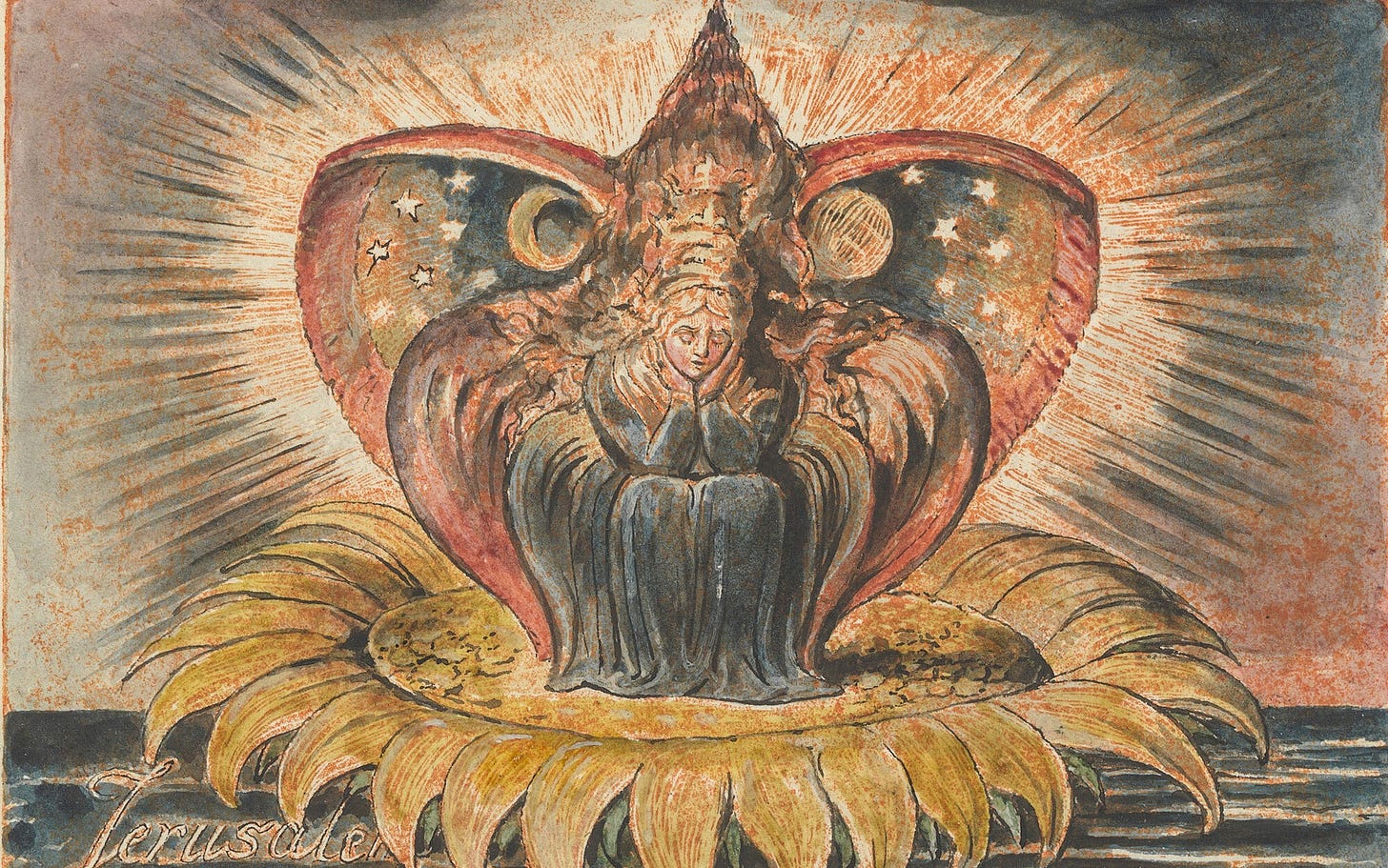On Imagination
‘I was a hidden treasure, and I yearned to be known. That is why I produced mankind, in order to be known in them’
Intro
Two weeks ago I wrote of a vision here that serves as the inspiration for this blog, ‘A Mass of Lizards’. I’m returning now to explain my thoughts on visions and how they relate to dreams. This article is really more of a work in progress, currently consisting of a literature review. I’m attaching a disclaimer - I’ve struggled to put this into a form that I’m satisfied with. What I’ve written for now is very dry, while I explore how to express these ideas in terms of my personal experience.
The key idea that I will touch on today is that dreams and visions demonstrate our relationship to our unconscious Self. Visions may at first glance seem fanciful and make believe. But if we are willing to accept the premise that dreams are a communication from our unconscious, it is a minor leap to believe our unconscious may communicates with us in other ways, such as visions.
Imagination
Henry Corbin wrote at great length on the function of Imagination. Similar to Jung, he states our being consists of two principles, our hidden, invisible unconscious and the more apparent, conscious ego. The imagination is where these two principles are in sympathy, where the invisible descends and where our conscious ego is raised to meet it.
Corbin states that our imagination reveals a world that is just as real as our physical world, and while it may not follow the same empirical rules, it has it’s own structure and way of being. Rather than being mere ‘fantasy’, it is in fact the organ through which our greater principle makes itself known to ourselves. The imagination is the source of dreams and visions, and the source of how we interpret our everyday experience.
Exegesis
It’s important to realize that there is no getting away from our unconscious. On the one hand, we can be in full communion with our unconscious which enables us to perceive reality in a clear manner. On the other hand, we may reject it.
Our perception of reality by nature is always veiled to some extent, and this veil may be more opaque or transparent. When the veil is more opaque, it’s common to mistake ourselves to be something other than what our unconscious is communicating to us. This will hamper the process of self-reflection, meaning that we imprison ourselves in false understanding.
Dream
Dreams tend to convey such a self-understanding wherein the veil through which we see ourselves is more opaque. As I wrote in earlier posts, the aspect of our self that we refuse to see clearly is projected symbolically in dreams, and in similar experiences in our every day life. In order for this rejection to be believable, we pretend to be less than we are and conjure hostile beliefs about the world which confirm it.
Dreams tend to be more particular in nature. They represent a particular problem that is obsessed over, halting our growth until it is resolved. A dream might point to a project or colleague that is frustrating us at work, or a relationship issue that we have with our family or significant other. We do not see what detrimental aspect of how we understand ourself is driving these dramas, and that is why these dramas and dreams tend to recur. Once this particular issue is seen, we can halt our obsession and thereby come to communion again with our unconscious.
Vision
Visions also demonstrate our relationship with our unconscious Self. However unlike dreams, they tend to represent the nature of our unconscious in a more transparent manner, where the structure of our unconscious is revealed. This structure is the Hero’s Journey, which has been explored by many other authors including Joseph Campbell, and which I hope to explore further at a later date.
In short, the journey represents the call to action from the unconscious that I’ve written about many times already. Dreams represent the halting of this journey, when an aspect of ourselves must be reflected upon before we can begin again. The journey represents a descent into the underworld where we encounter the unconscious, and then we ascend again into our own world, bearing a gift that we gained from this encounter. Once complete, the cycle renews again.
Conclusion
Our unconscious lies in wait for us to answer its call, it yearns to be revealed in us. While our unconscious represents a universal principle that we all participate in, it takes form within us according to our particular aptitude and capacity, taking shape according to what we love. As such, the unconscious depends on us all to give birth to the creative expression of the multi-varied nature that we call human existence.


